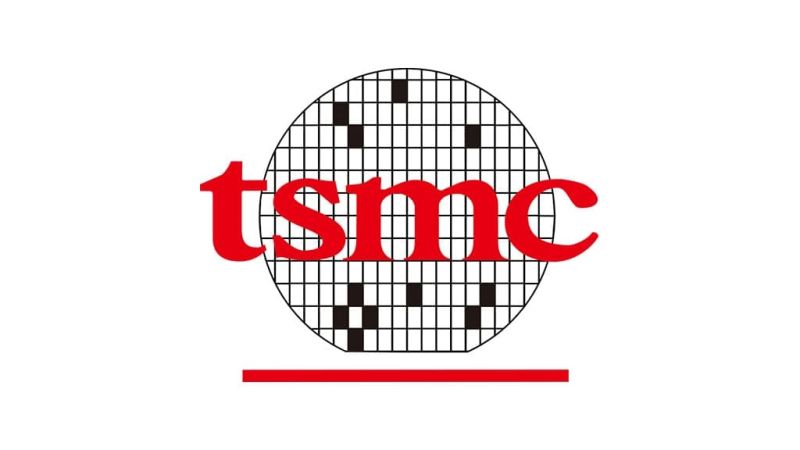Taiwan to Drop TSMC Law

Business
29 April 2025 10:01
The global semiconductor industry is experiencing significant changes, as recent developments in the chip-making sector are reshaping the landscape. Amid the ongoing semiconductor shortages and government restrictions, Taiwan’s government has introduced a new policy in response to growing international investment from Taiwan Semiconductor Manufacturing Company (TSMC) and the effects of the latest U.S. tariffs under the Trump administration.
TSMC, one of the world’s largest and most advanced chip makers, has been ramping up its offshore production facilities in response to both tariff pressures and incentives from various governments. The company has committed over $100 billion to establishing manufacturing plants in countries including the United States and several EU nations.
As part of this expansion, TSMC’s Arizona plant in the United States is designed to produce chips using the 4 nm process, with future plans to scale down to 3 nm and 2 nm. However, Taiwan’s growing concerns over the potential loss of high-tech chip production have led to the implementation of new regulations aimed at protecting its semiconductor industry.
In response to these concerns, Taiwan’s government passed Article 22 of the Industrial Creation Ordinance, which introduces a new "N-1" policy. Under this policy, countries with TSMC fabs outside Taiwan will be limited to manufacturing chips up to one generation behind the cutting-edge technology being produced in Taiwan. For example, if TSMC in Taiwan develops 1 nm chips, overseas facilities can only produce chips using the 2 nm process or older.
More:Yu Yangyi Joins Wolves Esports
The policy aims to maintain Taiwan’s position at the forefront of semiconductor manufacturing technology while allowing TSMC’s international plants to remain functional but somewhat restricted in terms of production capabilities.
Despite the policy’s implementation, the impact on TSMC’s overseas plants is expected to be minimal for the time being, as these fabs are set to produce chips on slightly older process nodes, such as 4 nm, which is already planned for the Arizona site. Additionally, the United States has proposed a 30% tax on chips produced domestically, further complicating the landscape of international semiconductor manufacturing.
 Related news
Related news
View AllTL;DR
- T1 has signed an MOU with the South Korean Navy’s Power Analysis and Evaluation Team.
- The partnership focuses on...
Business
Feb 13, 2026
TL;DR
Business
Feb 13, 2026
* Team Secret has officially entered Vietnam’s Arena of Valor competitive scene, marking its expansion into one of Southeast Asia’s...
Business
Feb 10, 2026
TL;DR
Business
Feb 10, 2026
TL;DR
- Ubisoft has reportedly cancelled a multiplayer Assassin's Creed project codenamed AC League.
- The co-op title was originally planned as...
Business
Feb 09, 2026

Business
29 April 2025 10:01
The global semiconductor industry is experiencing significant changes, as recent developments in the chip-making sector are reshaping the landscape. Amid the ongoing semiconductor shortages and government restrictions, Taiwan’s government has introduced a new policy in response to growing international investment from Taiwan Semiconductor Manufacturing Company (TSMC) and the effects of the latest U.S. tariffs under the Trump administration.
TSMC, one of the world’s largest and most advanced chip makers, has been ramping up its offshore production facilities in response to both tariff pressures and incentives from various governments. The company has committed over $100 billion to establishing manufacturing plants in countries including the United States and several EU nations.
As part of this expansion, TSMC’s Arizona plant in the United States is designed to produce chips using the 4 nm process, with future plans to scale down to 3 nm and 2 nm. However, Taiwan’s growing concerns over the potential loss of high-tech chip production have led to the implementation of new regulations aimed at protecting its semiconductor industry.
In response to these concerns, Taiwan’s government passed Article 22 of the Industrial Creation Ordinance, which introduces a new "N-1" policy. Under this policy, countries with TSMC fabs outside Taiwan will be limited to manufacturing chips up to one generation behind the cutting-edge technology being produced in Taiwan. For example, if TSMC in Taiwan develops 1 nm chips, overseas facilities can only produce chips using the 2 nm process or older.
More:Yu Yangyi Joins Wolves Esports
The policy aims to maintain Taiwan’s position at the forefront of semiconductor manufacturing technology while allowing TSMC’s international plants to remain functional but somewhat restricted in terms of production capabilities.
Despite the policy’s implementation, the impact on TSMC’s overseas plants is expected to be minimal for the time being, as these fabs are set to produce chips on slightly older process nodes, such as 4 nm, which is already planned for the Arizona site. Additionally, the United States has proposed a 30% tax on chips produced domestically, further complicating the landscape of international semiconductor manufacturing.
 Related news
Related news
View AllTL;DR
- T1 has signed an MOU with the South Korean Navy’s Power Analysis and Evaluation Team.
- The partnership focuses on...
Business
Feb 13, 2026
TL;DR
Business
Feb 13, 2026
* Team Secret has officially entered Vietnam’s Arena of Valor competitive scene, marking its expansion into one of Southeast Asia’s...
Business
Feb 10, 2026
TL;DR
Business
Feb 10, 2026
TL;DR
- Ubisoft has reportedly cancelled a multiplayer Assassin's Creed project codenamed AC League.
- The co-op title was originally planned as...
Business
Feb 09, 2026




